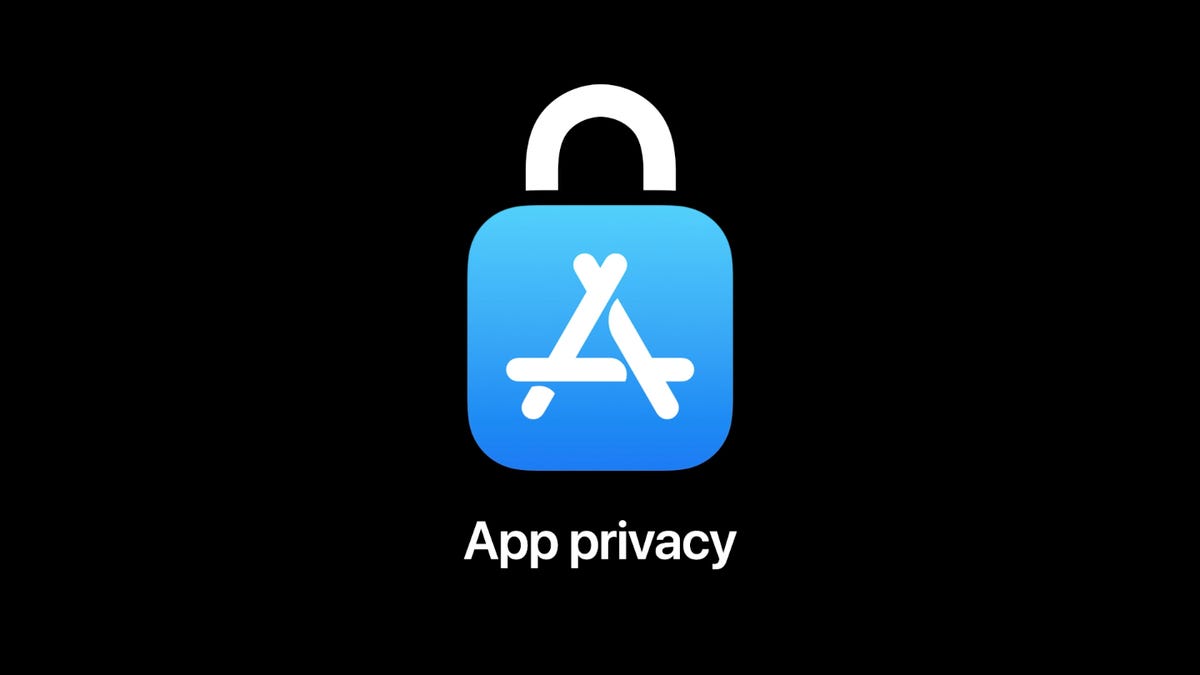Apple's new iOS privacy updates will show how apps are tracking you
What happens on your iPhone doesn't necessarily stay on your iPhone.

Apple's privacy announcements on Monday highlighted the company's push for protecting people's data.
Apple announced new privacy features for its devices at its annual Worldwide Developers Conference on Monday. These updates include more controls of sharing location data and indicators when an app is using your microphone or camera.
"All of our product work is grounded in a set of privacy principles," said Craig Federighi, Apple's senior vice president of software engineering.
The updates mean that you can limit how much location information is shared with apps -- only allowing it approximate data rather than your precise whereabouts. Apple also introduced recording indicators through an orange dot on your status bar that will tell you when your camera or microphone is activated.
Apple also introduced labels for app permissions to inform people how much data an app requests before they download them. The feature will show people those labels in two categories, on "Data Linked To You" and "Data Used to Track You."
"For food, you have nutrition labels," said Erik Neuenschwander, Apple's user privacy manager. "So we thought it would be great to have something similar for apps. We're going to require each developer to self-report their practices."
Apps on the iOS store will now explain how much data they're requesting.
The privacy updates also extend to Apple's Safari browser, with a new "Privacy Report" button by the URL bar. You'll soon be able to see all the third-party trackers on a website through one click and block them from following you across the internet.
Apple also announced a major shift from how tracking works for iOS 14 -- requiring opt-in from people rather than having them need to opt-out. That means that unless you give explicit permission to an app, it can't use your data for targeted ads, share your location data with advertisers, share your advertising ID or any other identifiers with third parties.
Until a person gives permission, the ad identifier associated with an iOS device defaults to all zeroes, Apple said.
There's exceptions to it, as Apple explained to developers in its User Privacy and Data Use post. Developers can still track people without permission if the data sent from the app is not done in a way that can identify a person, or if the tracking is specifically done for fraud prevention or security purposes.
Safari will also be adding protections against browser extensions -- which can have access to more information than what you originally downloaded them for. A Reuters report found a massive spying campaign carried out through extensions on Google Chrome on June 18.
The new Safari features allow people to control how much access extensions have -- from how long the extensions are active for to what websites the extensions can be used for.
The new Privacy Report feature shows all the trackers hidden on websites you visit.
Apple has pushed to lead the pack of tech giants on data privacy as people have become increasingly concerned about how much information companies like Facebook and Google are collecting on them. In 2019, Apple put up a large billboard focused on privacy at the CES tech show, and in 2020 the company's privacy chief spoke on a CES panel about how Apple protects customer data.
WWDC is Apple's annual conference for software updates to its line of devices. The company has backed up its privacy talk by announcing features at previous WWDCs like Sign In With Apple, which generates random email addresses to log in to apps rather than tying your actual identity to services. On Monday, Federighi said up to 200 million people have used this feature since it was announced last year.
Apple has also clamped down on location tracking through iOS and blocking third-party browser trackers.
In one case, the privacy protections backfired after security researchers from Google found that the anti-tracking features on Apple's Safari browser actually introduced more tracking risks -- a flaw Apple fixed in December.
See also
With the coronavirus pandemic, ensuring trust and privacy has become an even bigger challenge for Apple, which collaborated with Google to help track the spread of the contagious disease. The companies have maintained that the Bluetooth-tracking capabilities are strictly opt-in, but admitted that there would be a major trust hurdle to overcome.

